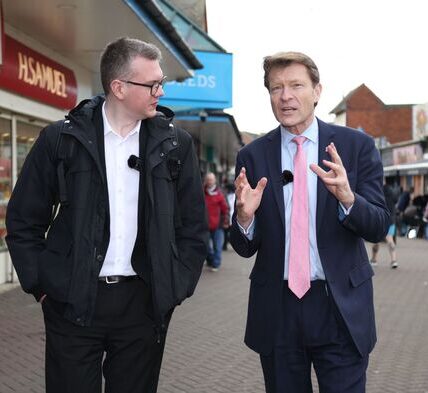Nigel Farage called for an end to “Londoners treating our coasts like bolt-holes”.

Nigel Farage is the MP for Clacton in Essex (Image: Getty)
Nigel Farage is demanding a ban on second-home buyers purchasing new-build properties in Britain’s picturesque coastal hotspots, insisting that sales should be restricted to local residents in order to revive struggling communities. The Reform UK leader, who is himself MP for Clacton in Essex, condemned the trend of wealthy outsiders hoovering up homes for holidays, leaving locals priced out and high streets deserted outside peak season.
He explained: “These beautiful places – think Cornwall‘s coves or Devon’s cliffs – are being turned into ghost towns for nine months of the year. It’s time we prioritised our own people. New homes in these areas should go to locals first, full stop. No more Londoners treating our coasts like bolt-holes.” The proposal comes amid mounting anger over the second-home boom, which has driven average prices in hotspots like St Ives in Cornwall to £507,000 – more than 12 times the local median household income of £41,000.
In the Lake District, similar surges have seen villages like Coniston suffer worker shortages, as young families flee unaffordable rents and sales, with average prices reaching £608,000.
Mr Farage’s intervention contrasts with previous opposition to council tax premiums on second homes, which he branded “madness” and “extortion” in May, urging Reform-controlled councils to scrap them.
On that occasion, shortly after Reform’s local election gains, he declared property ownership to be a “right and freedom”.
Now, with polls showing Reform neck-and-neck with Labour, he appears to be advocating protectionism to attract disaffected coastal voters.
The policy is reminiscent of Welsh Government trials of “local first” marketing, whereby properties in second-home blackspots are advertised solely to residents for an initial period.

Polperro village and harbour in Cornwall (Image: Getty)
Mr Farage wants the idea to be enshrined nationally for new developments, potentially enforced via planning rules or residency tests.
He told The Telegraph: “We’re not banning second homes outright – that would kill tourism – but we must stop the flood of new ones.”
Housing charity Shelter welcomed the focus on affordability but warned of enforcement challenges, with chief executive Polly Neate saying: “Restricting sales sounds bold, but without building more homes overall, it’s a plaster on a gaping wound.”
Critics, including the National Residential Landlords Association, labelled the idea “discriminatory” and likely illegal under equality laws.
Labour dismissed it as “populist posturing” from a man who owns multiple properties himself, including a £1m family home in Kent and beachside rentals via his company Thorn in the Side, contributing to a portfolio worth almost £3m. Shadow housing secretary Angela Rayner has faced similar scrutiny over her own second home purchase.
Mr Farage’s own portfolio has come under renewed scrutiny, particularly over the purchase of his Clacton constituency home. The £885,000 four-bedroom property, featuring a heated swimming pool, was bought in the name of his partner, Laure Ferrari, in 2024, avoiding a £44,000 stamp duty surcharge which would have applied had Mr Farage purchased it as his second home.
Speaking in November 2023, he told Sky News: “I’ve just exchanged contracts on the house that I’ll be living there in – is that good enough?… I’ve bought a house in Clacton. What more do you want me to do?”
He followed up: “I have just exchanged contracts on a house that I’ll be living in there.”
However, in September, he admitted: “I should have said ‘we’. It’s her money. It’s her asset. I own none of it. But I just happen to spend some time there.”
